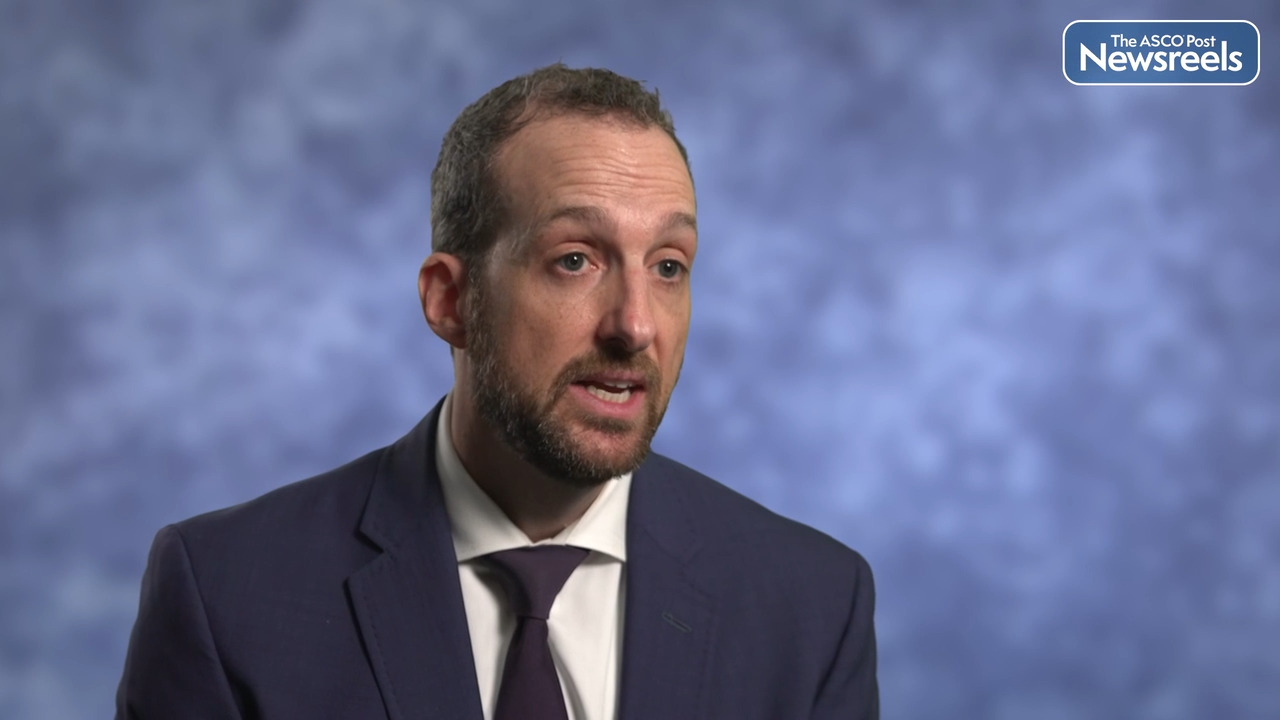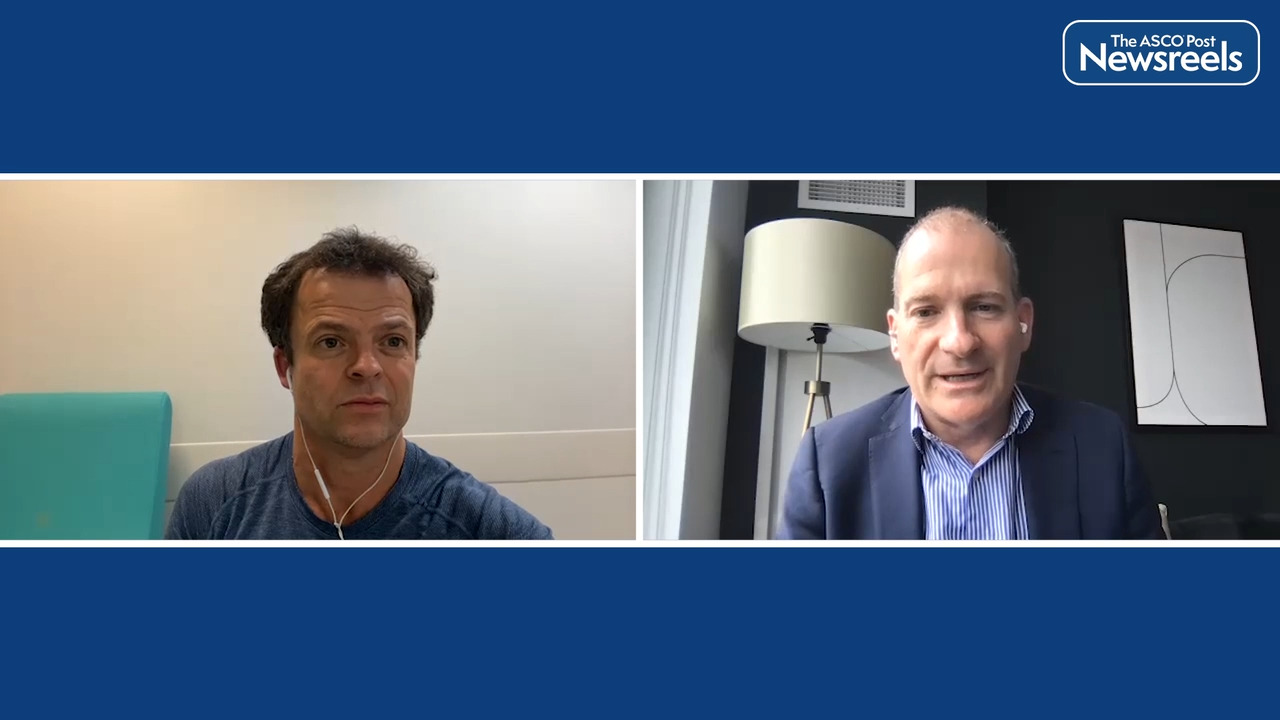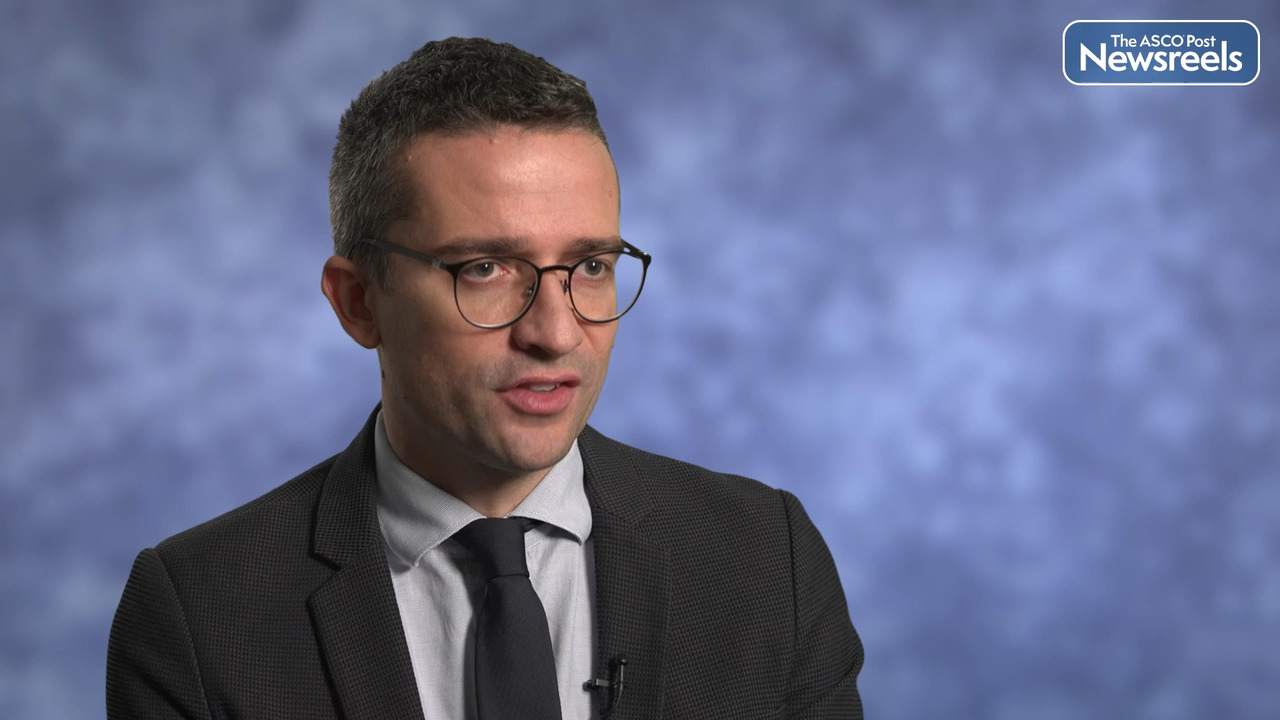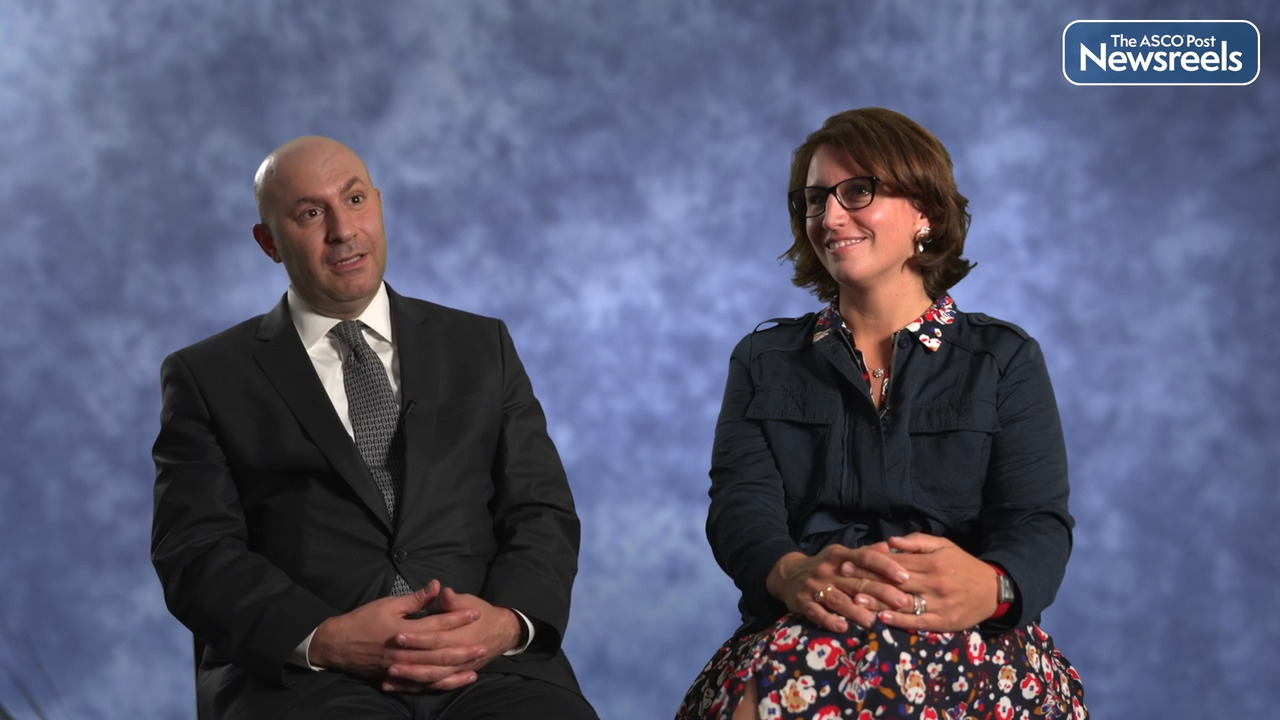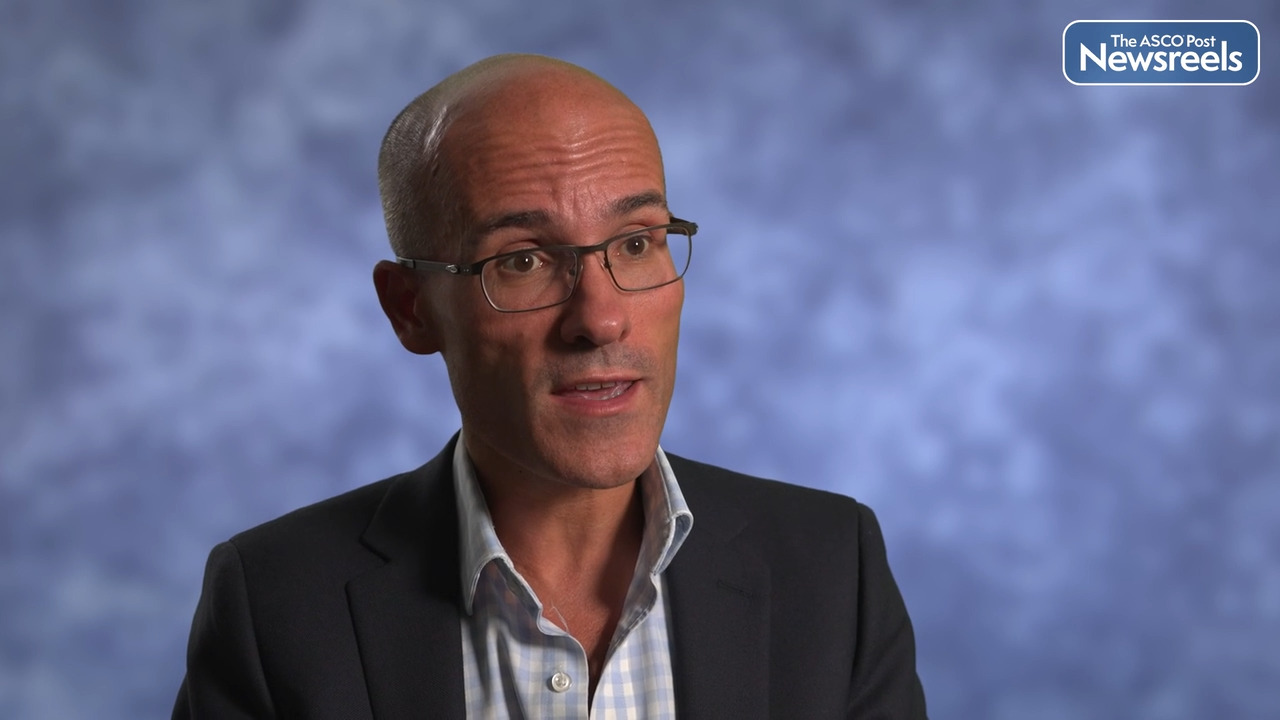Transcript
Disclaimer: This video transcript has not been proofread or edited and may contain errors.
Currently there is no solid evidence to justify the duration of immunotherapy in the non-small cell lung cancer. In phase one trials, the duration was set without any limit until progression or toxicity. Then it was set to five years, then two years, but again, without randomized data to justify such duration.
The DICIPLE phase three trial, also entitled IFCT-1701, has had the goal to look whether a shorter duration of immunotherapy by Nivo plus Ipilimumab would be as efficient as a longer one, two years, in non-small cell lung cancer, in first-line setting.
So we randomized the non-small cell lung cancer patients, metastatic patients, PS01, aged 18 to 75, with measurable disease, any PDL1 into an induction treatment by Nivo plus Ipilimumab for six months at classical dosing. And at six months, we randomized patients with disease control into a continuation arm with the standard immunotherapy, or a stop-and-go arm, where the immunotherapy was stopped, the patient were observed, and the resume immunotherapy in case of progression. Of course, in the two arm, the follow up intervals were the same.
We accrued 265 patients, treated 261, but only randomized 71 patients because most of the patients progressed or exhibit toxicity precluding continuation. And unfortunately, we had to stop the trail because the Nivo plus Ipil combo will not be registered or nor reimbursed in Europe.
But, the results were striking because the median PFS in the continuation arm was 20.8 months, as compared with 35 months in the stop-and-go arm. The OS results show, again, there was no deleterious effect to stop early the immunotherapy, with 18 months OS rates of 79% in the continuation arm and 94% in the stop-and-go arm.
Furthermore, there were tenfold less grade three, four adverse events in the stop-and-go arm. So these results are hypothesis-generating because of the lack of statistical power, but are very provocative. And we have launched another randomized, phase three clinical trial with the very same design, meaning randomization at six months in patients with disease control, but after induction by chemo-immunotherapy. And again, it will be a non-inferiority trial. This trial is the DIAL trial, which began on March '22.
